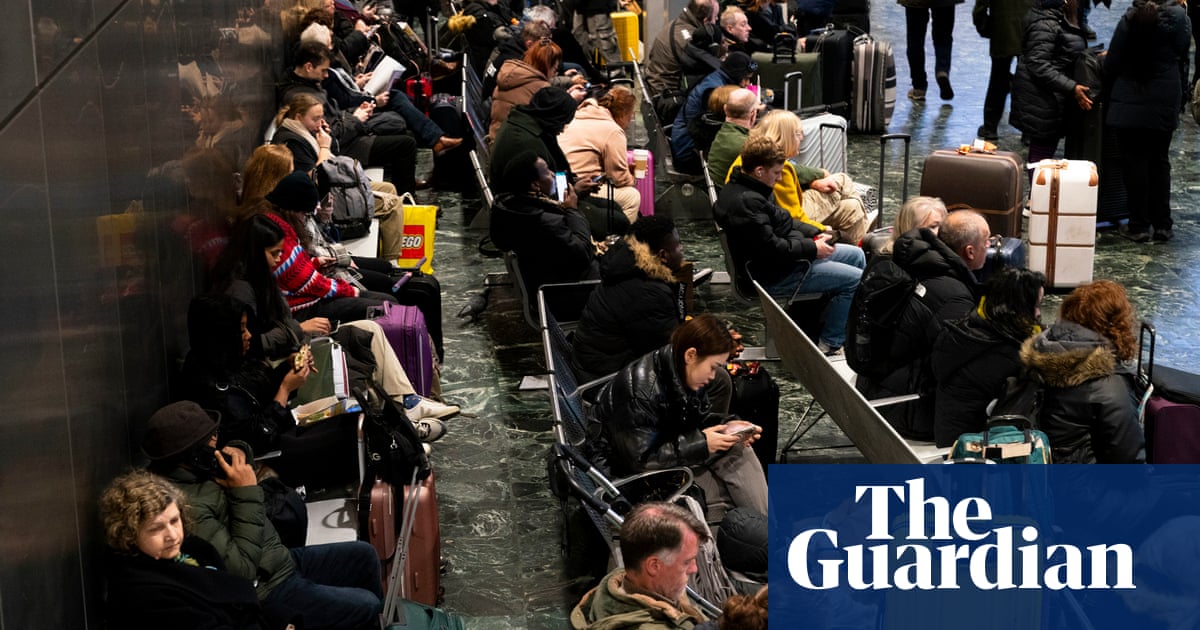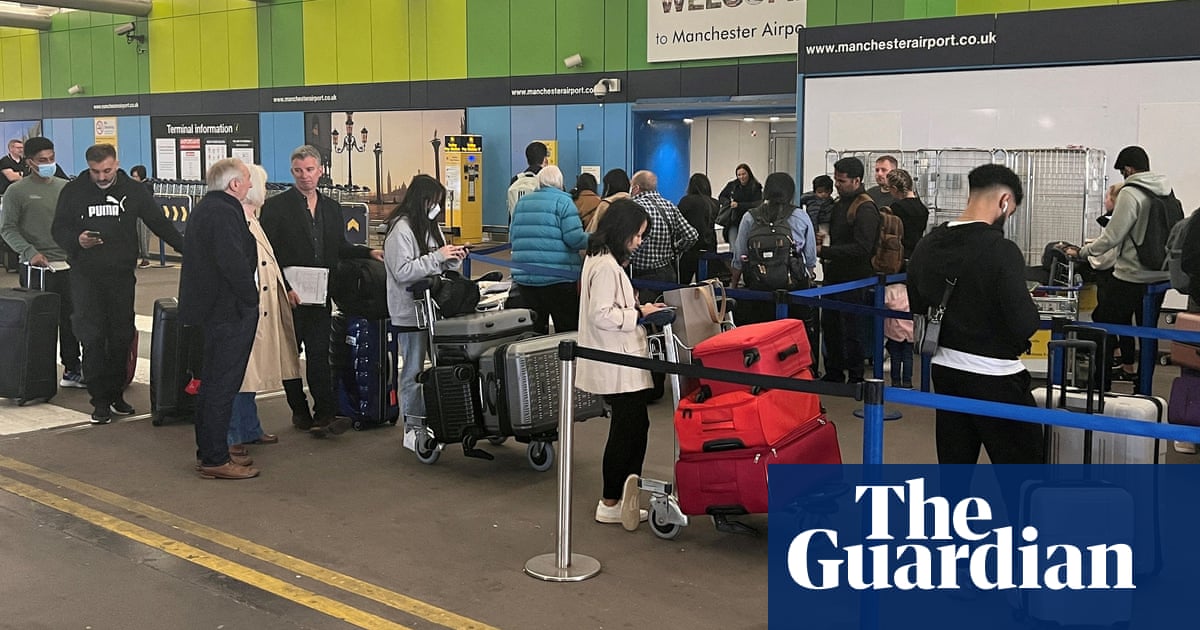
Passengers travelling into the UK during a strike by Border Force staff over the holiday period should prepare for the prospect of long delays and a remote possibility that airports could close, a senior Border Force official has said.
The warning came as a senior Home Office source said soldiers and civil servants covering for striking Border Force staff would not have the skills needed to spot modern slavery victims.
Steve Dann, the chief operating officer of Border Force, said the government had a “reasonable expectation” that it would be able to keep “most if not all ports open” but he would not rule out closures when staff go on strike from Friday.
“Military personnel and volunteers from across the civil service have been trained to support Border Force at airports and ports over the festive period. We have a reasonable expectation that by using contingency workforce we will be able to deliver a service that keeps most if not all ports open. However, the general public should expect disruption,” he said.
Passengers should contact their airlines or travel company to check that their flights are operating as planned, he added.
About 1,000 Border Force staff who are members of the Public and Commercial Services (PCS) union will strike every day from Friday to the end of the year, except 27 December. More than 10,000 flights are scheduled to land at the airports during that time, equating to 2m airline seats.
Action is being taken in a dispute over pay, pensions and conditions by workers at Heathrow, Birmingham, Cardiff, Gatwick, Glasgow and Manchester airports, and the port of Newhaven in East Sussex.
Soldiers and civil servant volunteers have been trained to conduct some checks at the border and will be deployed in an attempt to minimise disruption.
About 600 soldiers received five days of training in November, sources have told the Guardian. About 200 Home Office officials and another 200 officials from HM Revenue & Customs have also been trained to work.
Border Force guards are usually given three weeks of training as a minimum before they interact with the public. After three weeks, they are given a mentor to work alongside for up to a month to ensure they can work solo on a passport desk.
While in training, they learn how to process and interview passengers, identify victims of modern slavery, spot forged documents, identify suspected trafficked children, and learn how to question passengers.
A senior Home Office source said the covering soldiers and civil servants could not be expected to have developed the skills necessary to complete all of these roles.
“These are not skills that can be developed overnight and no one can expect them to be able to spot victims of modern slavery. There will hopefully be some experienced Border Force people at hand to help out,” the source said.
The PCS general secretary, Mark Serwotka, said: “The Home Office claims its number one priority to is keep our citizens safe and borders secure. If this were true, it wouldn’t be scrambling around trying to find inexperienced people to cover the role of our highly trained members who will be on strike.
“Our members on passport control are skilled workers whose day-to-day experience gives them invaluable insights that others just don’t have. The government should be valuing that expertise and rewarding those workers with a proper pay rise rather than subjecting them to a derisory 2% when inflation is nearer 11%.”
There are fears that delays in checking the passports of arriving passengers could lead to long queues and people being held on planes, disrupting subsequent departures.
Dann said he had held meetings with airlines and airports. “As is the case with any industrial action, we simply will not know the level of Border Force officers who will report for duty each day and what the operational impacts might be. And as you would reasonably expect, the contingency workforce will not be able to operate with the same efficiency as our permanent workforce,” he said.
“Border Force’s number one priority is to keep our citizens safe and borders secure. We are working together with partners across the travel industry to ensure we can continue to meet critical demand.”












